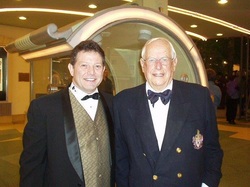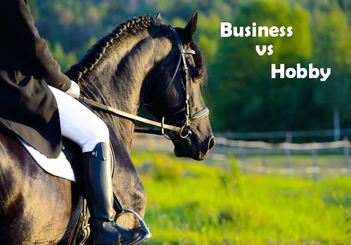 Paul Husband & Willis Pyle at the Annie's Paul Husband & Willis Pyle at the Annie's Husband Law honors Willis Pyle, a respected friend and one of the greatest animators of all time. Willis, whose animated work is found in feature films such as Disney's Pinocchio, Bambi and Fantasia; and great UPA shorts such as Gerald McBoing-Boing, Robin Hoodlum, Punchy de Leon, The Magic Fluke and Mr. Magoo. Willis passed away in June at the age of 101. After long tours of duty with Disney and UPA he enjoyed a successful career, working on various projects including A Family Circus Christmas, This is America Charlie Brown and other Charlie Brown specials. Paul Husband explains, "I was introduced to Willis years ago by Howell & Margo Wallace and Jim & Linda Dykeman. I had the pleasure of bringing him as my guest to ASIFA-Hollywood's Annie Awards several years ago when it was held at the Alex Theater in Glendale, where he enjoyed socializing with many of his old friends from the entertainment business. Willis was a legendary talent and a great man of outstanding character who will be missed but never forgotten. READ MORE
3 Comments

Recently, The Treasury Inspector General For Tax Administration (TIGTA) reviewed methods used by the IRS to identify businesses that may not be operating for profit, and recommended steps be taken to maximize the use of all relevant and available taxpayer information to better identify hobby losses. This is expected to pose a significant issue for some horse businesses.
The below is quoted from Highlights of Reference Number: 2016-30-031 to the Internal Revenue Service Commissioner for the Small Business/Self-Employed Division. The Treasury Inspector General For Tax Administration (TIGTA)'s review of a statistically valid sample of 100 returns determined that 88 percent showed an indication that Schedule C businesses were not engaged in for profit. TIGTA estimates that 7,511 returns in the total sample population of taxpayers may have inappropriately used hobby loss expenses to reduce taxes by as much as $70.9 million for Tax Year 2013. TIGTA recommended that the IRS: 1) make use of SB/SE Division research capabilities to identify high-income individual returns with multiyear Schedule C losses and other factors that indicate the taxpayer may not have a profit or capital gain motive for the activity and 2) emphasize the importance of required filing checks in the preliminary determination of whether to pursue a hobby loss issue and provide tools to assist examiners in documenting their conclusion. In response to the report, IRS management agreed with the recommendations and plans to take corrective actions. READ THE FULL REPORT
Photo Copyright: vikarus / 123RF Stock Photo
 Forbes.com published an article recently, stating that scammers posing as Internal Revenue Service (IRS) agents have managed to bilk tens of millions of dollars from unsuspecting taxpayers. The scammers inform the residents that some personal information such as a social security number or personal financial information needs to be verified in order for their tax returns to be processed. “Don’t be fooled,” says IRS Commissioner John Koskinen. “The IRS won’t be calling you out of the blue asking you to verify your personal tax information or aggressively threatening you to make an immediate payment.” READ THE FULL ARTICLE  On May 10th, 2016, Paul Husband, along with co-presenter Robert Misey, presented “Tax Issues in the Equine Industries”. This practical two-hour online seminar hosted by CCH focused on key domestic and international tax concepts and issues in the equine industry. A sampling of topics covered in this program include: Section 183 “Hobby Loss” challenges; Section 469 Passive Activity Losses; Depreciation; Section 179 Expensing of race horses and show horses; How to minimize your tax on equine activities abroad; and taxation on gains of sales of U.S. horse farms. All professionals in public practice and in the equine industry will benefit from this helpful seminar, including business tax and finance executives, directors, managers and staff; CPAs; enrolled agents; tax preparers and staff; accountants, attorneys and other financial advisors who work with and advise clients in the equine industries that have domestic or international tax issues. CCH, a Wolters Kluwer business, has been publishing materials on U.S. tax law and tax compliance since the inception of the modern U.S. federal income tax in 1913. Today, they are a leading provider of software solutions and local expertise that helps tax, accounting, and audit professionals research and navigate complex regulations, comply with legislation, manage their businesses and advise clients with speed, accuracy and efficiency. |
AuthorB. Paul Husband, avid horseman, author, tax attorney and legal representative for the entertainment industry. Archives
August 2018
|

